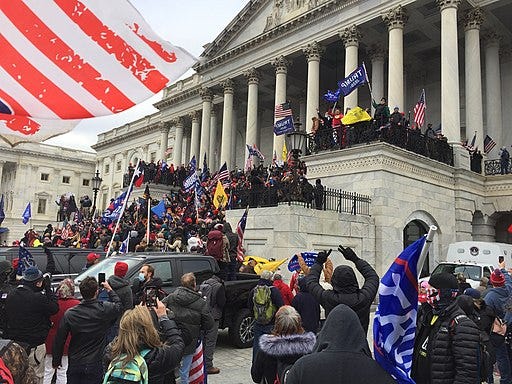Trump was a riot – and I mean that literally
There are times when a speaker wants their audience to think a particular thought without having to tell them explicitly
Donald Trump’s second impeachment trial is underway. His lawyers argue that, when he told supporters to “fight like hell”, he was only speaking figuratively. His lawyers are wrong.
Their argument is effectively that Trump’s message was no different from calling for a “war on poverty” or a “battle of ideas” – metaphors that are commonly used without (usually) intending any physical violence to ensue. There is ample evidence to show that was not Trump’s intended meaning. But perhaps the simplest argument – one that should appeal to lawyers – is that, on the day the Capitol was stormed, there was no legal way to “fight” in a purely figurative sense.
Whenever we fight – be it literally or figuratively – we take action: making speeches, distributing literature, raising funds. The list of potential acts is endless. But, on 6 January 2021, the day of Trump’s speech, there were no actions left for Trump’s supporters to take. The election had been fought (yes, “fought”). The court battles (yes, “battles”) had been decided. All that remained was for Congress to affirm the result … for Congress to affirm the result. There was nothing lawful the supporters in the street could do to facilitate that affirmation or to obstruct it.
Consider this analogy. Imagine that a trial is taking place in a criminal court. If you think the prosecution case is wrong, you can encourage the defendants to “fight” the charges. You call on their lawyers to “attack” the prosecution’s case. But if you make a speech to a group of people who have no role in the trial, your options are limited. If you beseech them to “march” on the court, to “fight like hell” when they get there, to “stop the [trial]”, you cannot be confident that anyone will believe you were expecting only lawful acts to ensue when the crowd reached the courthouse.
In my 2020 web-book, I Learned to Write, I included a chapter on using language figuratively. “There are times”, I wrote, “when a writer wants to influence their reader to think a particular thought without having to write it out explicitly.” Trump is a master of that – especially when appealing to his base.




